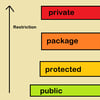Any job can be stressful at times, even if it’s a job that you love to do. But when stress seems to be constant and chronic, it can quickly and easily become so overwhelming that it’s harmful to your emotional and even physical health. While you can’t always avoid work-related stress entirely, there are steps you can take to manage it better. Here’s how…
Stay Calm
Because we react to stress in a similar way to physical danger, you may notice your palms sweating and a heightened heart rate thanks to the increased adrenaline in your body. This is actually a good thing, because the quicker you identify the signs, the faster you can start dealing with stress by being as calm and collected as possible.
Many people don’t realize or notice it, but stress can also stop your breathing for a number of seconds. So when you start feeling stressed, it’s a good idea to use deep breathing exercises to fill your body up with oxygen, which will slow your heart rate and relax your muscles. You can also try using other forms of calming relaxation such as meditation or yoga. By ensuring you have a calm attitude, it will reduce the effects of chronic stress and also help you to stay focused on your workload.
Take Breaks
Contrary to what many used to believe, taking these breaks from work will actually help to boost productivity rather than decrease it. That’s because these time out periods away from your job will actually help you physically relax and mentally recharge. In fact, studies have shown that taking these occasional breaks enhances productivity while improving decision-making, replenishing energy, and also enhancing creativity and attention spans.
So, make sure that you take a few short breaks to step away from your computer throughout your work day so you can move around a little and let your mind rest. Block out a planned ten minute break on your calendar each day, one during the morning and another during the afternoon, as well as making sure you have time away from your workstation or desk during lunch. Whether you chat with a friendly co-worker, practice relaxation techniques, or go outside for some fresh air, taking breaks is critical to reducing stress.
Get Enough Sleep
Getting enough quality sleep each night is essential when it comes to dealing with stress, because that’s when our bodies and our brains can recover. While many people may feel that staying awake longer to get more work is more important than a full night of sleep, it actually interferes with productivity, creativity, and focus during the day. So the more rested you are each morning, the better equipped you’ll be to cope with workplace responsibilities and stress.
When you feel tired after sacrificing sleep, it can make even the smallest issue seem like a massive crisis. It will also impair your thought process while generally making you become increasingly irritable. Start building healthier sleeping habits each night by limiting stimulating activities such as caffeine consumption or screen use. Staying off computers and TV in the hour before going to bed will help you fall asleep faster for a better quality of recharging sleep.
Exercise Daily
When you’re constantly concentrating on your workload, it’s very easy to overlook the importance of good physical health. But regular exercise has a well-documented ability to elevate moods by releasing endorphins, which makes it one of the best methods of naturally reducing your stress. So when you’re looking after yourself with regular exercise and good nutritional health, you’ll become physically and mentally stronger, making you more resilient to chronic stress.
Taking good care of yourself doesn’t necessarily mean a completely new lifestyle. There are many ways that you can fit a little extra exercise into your daily schedule, from waking up earlier to go for a jog, to taking a walk during your lunch break, or swimming a few laps in your pool after work. Even the smallest amount of physical movement each day can help reduce your stress, boost your mood, and increase your energy so you start feeling like you’re back in control.
Ask For Help
You shouldn’t try to handle all stressful situations on your own, as there are some high-pressure circumstances which you may need a little bit of help with. So instead of feeling hopelessly stressed and overwhelmed, try talking to someone. Whether they’ve experienced a similar situation or not, simply talking with them about how you feel may be enough to help you get through it all and improve how you feel.
While it may sound pretty easy, talking about it is one of the most effective methods of dealing with stress. Sharing your problems and accepting help from someone you trust can improve how well you manage your current situation as well as helping you deal with stress in the future. If you still feel like you’re overwhelmed with stress after talking with someone, it might be a good idea to talk to a professional therapist. They will be able to help you make behavioural changes and teach you better methods of stress management.
Final Thoughts
Stress is no joke. So if you continually feel overwhelmed at work, practice incorporating the tips above into your life to help you effectively deal with stress and stay calm under pressure.







Top comments (0)